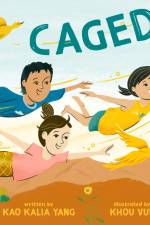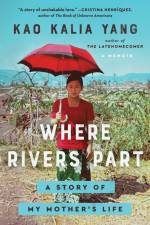av Kao Kalia Yang
379,-
"In the 1960s when Kalia's mother, Chue, was born, the US was actively recruiting Hmong Laotians to assist with CIA efforts in Laos's Secret War. By the time Chue was a teenager, the US had completely vacated Laos, and the country erupted into genocidal attacks on the Hmong people, who were perceived as traitorous for their involvement. Notably, from 1964-1973, Laos became victim to the heaviest bombardment by the United States against communist Pathet Lao, becoming the most heavily bombed country in history. Fearing vengeful soldiers looking to take their lives, Chue and her family quickly fled their village for the jungle, leaving all that they knew behind. Perpetually on the run, the family was often on the brink of starvation, and death loomed. During this tumultuous period, Chue met her husband, Bee, and unwittingly left her mother behind forever when she escaped to a refugee camp with his family, a mistake she would regret for the rest of her life. There, Chue, Bee, and their daughters lived in a state of constant fear and hunger until they finally made it to America. The determined couple enrolled in high school classes despite being in their late twenties and worked grueling factory jobs to provide for their family, yet most who meet Chue know nothing of her extraordinary resilience and traumatic past. In Where Rivers Part, told from her mother's point of view, Kao Kalia Yang unveils her mother's epic struggle towards safety and the important undocumented history of a time and place most US readers know nothing about, offering insight into America's Secret War in Laos with tenderness and unvarnished clarity. In doing so, she excavates the plight of many refugees, who suffer silently and are often overlooked as one of the essential foundations of this country. For readers of The Wild Swans by Jung Chang, The Spirit Catches You When You Fall Down by Anne Fadiman, and those who flock to stories about survival during wartime, Where Rivers Part is not only a personal account of resilience and survival but also a powerful and transporting look into Laos's Secret War and the lived experiences of the Hmong people"--





